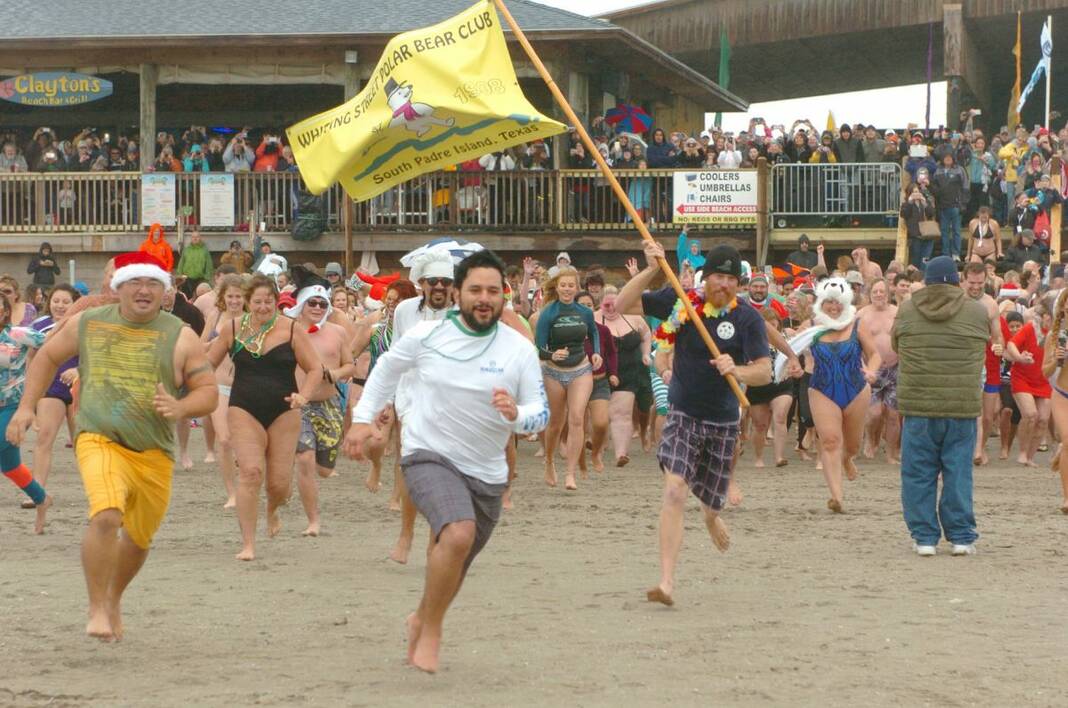|
Only have a minute? Listen instead
Getting your Trinity Audio player ready...
|
STAFF AND WIRE REPORTS
For the cold hardy, the 26th annual Polar Bear Dip will be held at Claytons on Monday, Jan. 1, from 10 a.m. to 1 p.m. on South Padre Island.
Temperatures are forecast to be in the upper 60s mid-day on Monday making this one of the warmer options in the U.S. for fans of the New Year’s Day plunge.
It’s a tradition, some will say. It’s good for your health, others will argue. But how healthy is it to jump into cold waters? Here’s what experts say.
Is it healthy to plunge into cold water?
Some swear by health benefits of cold water immersion, including improving mental health and reducing stress, reducing inflammation, boosting the immune system, increasing energy and blood circulation, nourishing hair and skin, increasing lung function and improving sleep. It’s an ancient practice that dates back to early ancient Egyptian and Greek practices.
But health experts paint a different story, stressing that there are many risks involved in what’s become a popular trend especially on social media platforms like TikTok.
Is jumping into freezing water bad for you?
The shock of cold water can immediately put your body in distress, The American Heart Association says, causing sudden spikes in breathing, heart rate and blood pressure.
Due to the “shock” of sudden plunging, cold water immersion can cause involuntary gasping, rapid breathing or hyperventilating, according to the National Weather Service. Uncontrolled rapid breathing can quickly become a drowning emergency if you inhale water and cannot stay afloat.
Because blood vessels constrict in response to sudden cooling, cold water immersion causes an instant and massive increase in heart rate and blood pressure, which increases the danger of heart failure and stroke, per the National Center for Cold Water Safety.
Hypothermia can also be triggered faster when you plunge into freezing water.




